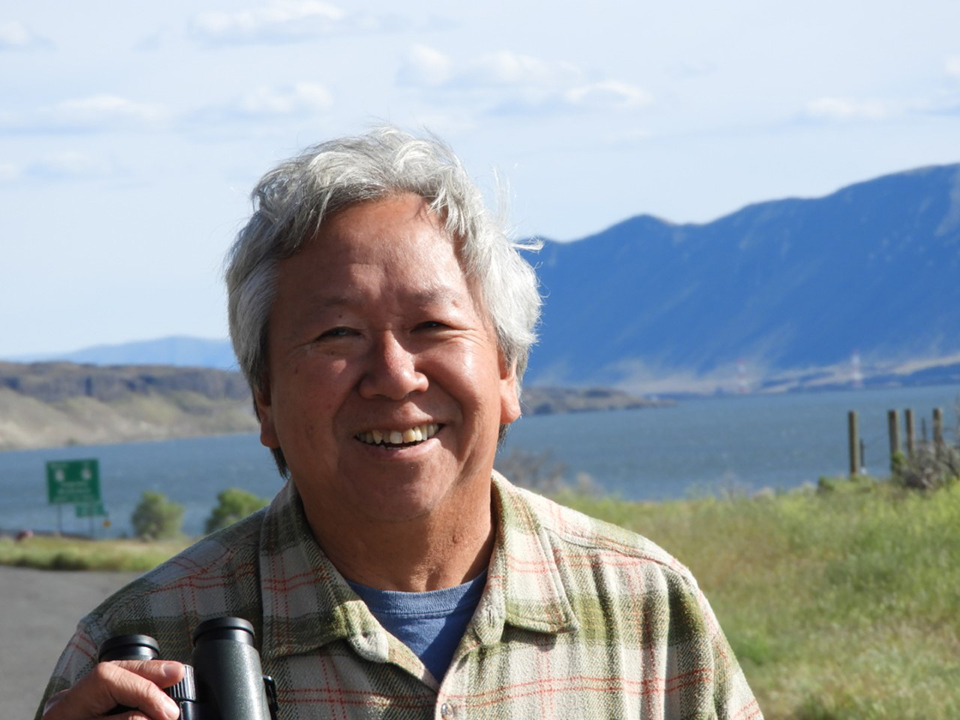
Art Wang
By Art Wang
For Northwest Asian Weekly
I finally visited China in 2019, traveling with my two adult children to Beijing, Shanghai, Xian, and Hong Kong. While it seemed we ate our way through China, my son Alex and I also would spend mornings looking at wild birds in the parks. I’ve been a birder since I was 12, even serving six years on the National Audubon Society board of directors. Alex is now a biologist in Hilo, working for the state of Hawaii supporting the recovery of endangered bird species.
Birding—looking at, identifying, and sometimes photographing wild species—is not commonplace in China and we would get some strange looks and questions. Our guides were not accustomed to tourists wanting to see birds and didn’t really understand the differences between seeing wild birds and domestic ones—one guide tried to help by taking us to a vendor with a trained pet magpie.
In the United States though, birding is as popular as it’s ever been. With COVID forcing people to stay home, more and more people came to appreciate the birds they saw when they ventured outdoors. In places like the Chinatown-International District, as traffic diminished and air got cleaner, people would comment about hearing birds for the first time in a long while.
But last year, historic racism and birding came crashing together on the national stage because of an incident between a Black birder and a white woman who called the police on him in New York’s Central Park. Later in the year, during Black Birders Week,
BIPOC birders, who have for so long felt marginalized and excluded, gained new acknowledgment and recognition. But even as more bird lovers of all races gained recognition and more people in our communities became aware of the comfort to be found in birdsong, the situation for birds has never been more dire.
In North America, we have lost three billion birds in the last 50 years. National Audubon studies have pointed to climate change as one of the biggest threats to birds over the next 50 years. People see the effects of climate change in smoke from forest fires and extreme weather events. Birds see it in the loss of habitat, and the timing and availability of food for migration and feeding young. Birds are telling us that we have to act now on climate change. Like us, their survival depends on it.
Fortunately the Washington State Legislature is poised to act on several major bills to address climate change.
Two key bills promise to drive a transition to a more just and sustainable world. We can follow the lead of Oregon, California, and British Columbia in adopting a Clean Fuel Standard that is effective and equitable. The Clean Fuels bill (HB 1091) addresses the problem that transportation is the single largest source (40+%) of greenhouse gas emissions in our state, emissions which fall disproportionately on the most vulnerable members of our community. That’s why I support the Clean Fuels Now effort to pass this bill.
In addition to implementing a Clean Fuel Standard, the legislature should pass the Healthy Environment for All (HEAL) Act (SB 5141), sponsored by state Sen. Rebecca Saldana. The HEAL Act would implement the recommendations of the environmental justice task force. It would define environmental justice in state law, requiring agencies to incorporate these principles into their decision-making and their engagement with the public around environmental issues. HEAL would include voices of communities that often bear the brunt of environmental burdens but who have historically been excluded on environmental issues.
Action to address climate change has to take place at all levels—international and national, as well as state and local. If we’re going to save the birds and people we love, Washington needs to act now to address climate change.
Art Wang was State Representative from the 27th District in Tacoma. He was first elected in 1980 and was one of the pioneer API elected legislators.



